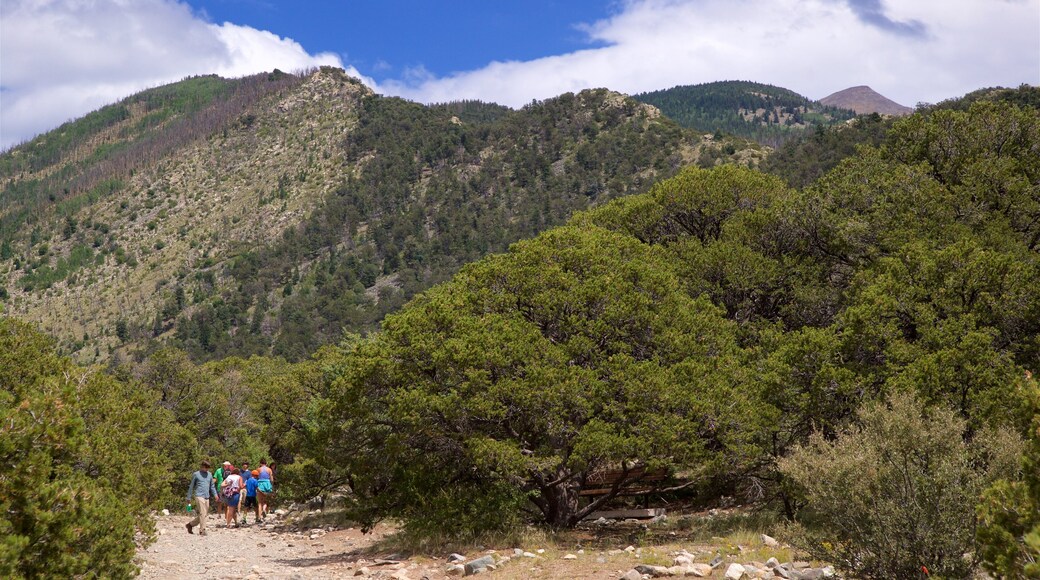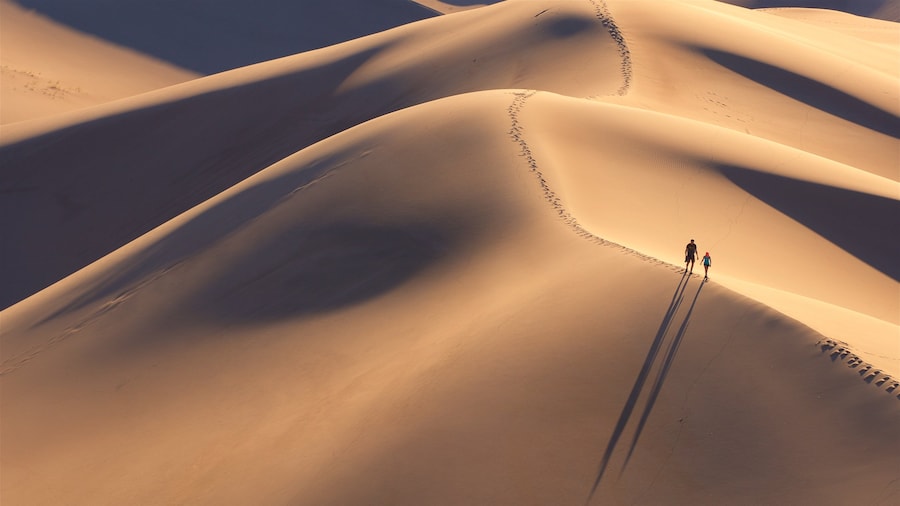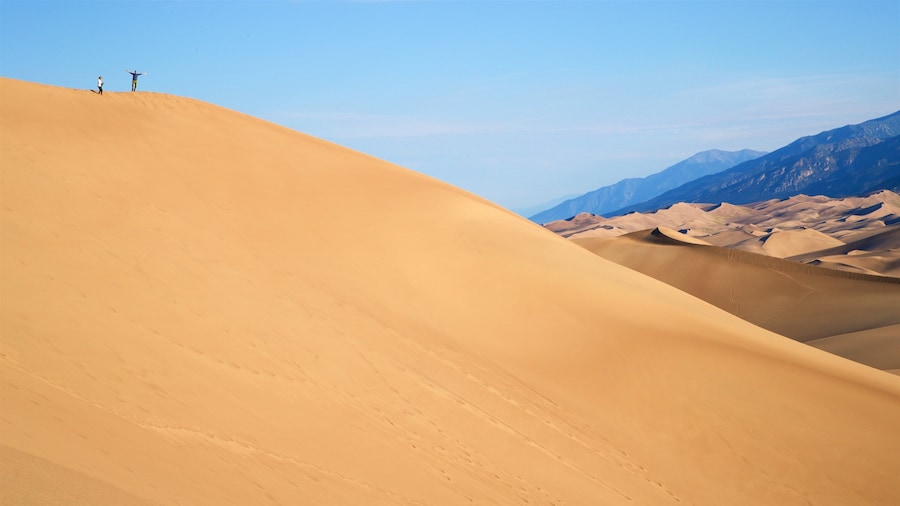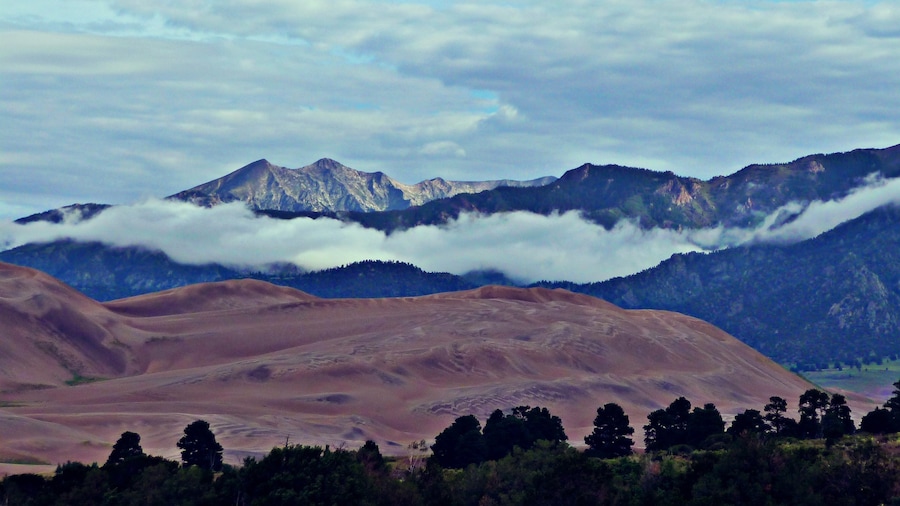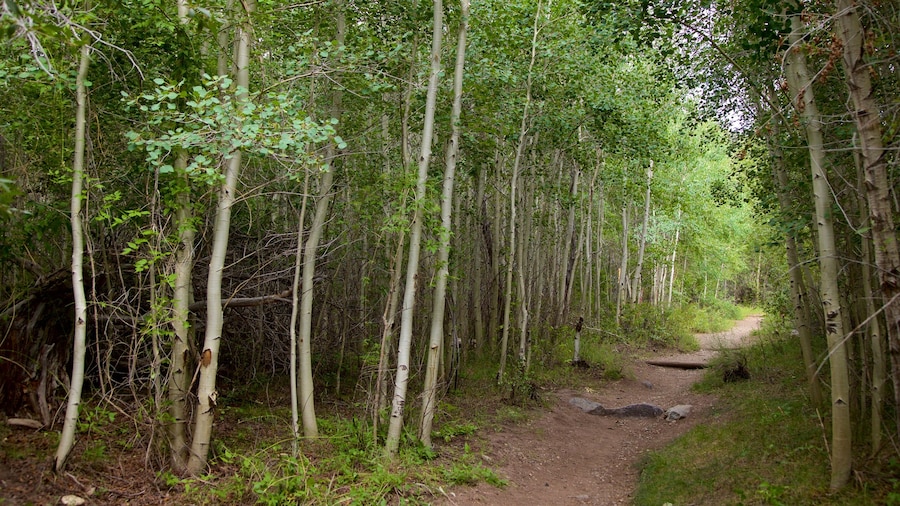The secluded, 25-foot-tall (8-meter) Zapata Falls cascade is one of the lesser-known beauty spots in Colorado. Hike along a trail leading to the fall and bring your camera to take photos of the waterfall, which is as photogenic in summer, when it gushes freely, as it is in winter, when its surface is typically frozen.
Take a moment in the falls’ parking lot to appreciate the views of the Great Sand Dunes, the tallest dunes in North America. Tall as they may be, the dunes are dwarfed by the even taller and more majestic Sangre de Cristo Mountains, which rear up behind them.
From the carpark, follow the 0.5-mile (0.8-kilometer) trail to the waterfalls. Though the trail isn’t long, it can be tricky to navigate, with slippery rocks dotting the path. Hikers will also need to wade across part of the creek be aware that the waters here can be ice cold even in summer.
Bring a camera as once you reach the stunning waterfalls, you’re going to want to take a photograph of the spectacular scene. In summer, the roaring falls emit a misty, white spray. In winter, the surface of the falls is frozen, though bright blue water can be seen flowing freely beneath the hardened ice.
While here, see if you can spot the black swift bird, which is known to nest on the rocky edges of cliffs and waterfalls. These graceful birds are identifiable by their elegant slender wings and dark gray-black plumage.
Find the Zapata Falls Recreational Area around 3 miles (5 kilometers) south of the entrance to the Great Sand Dunes National Park and Preserve. Look for a sign marking the turn that leads to the parking lot. This road is rather bumpy and is probably best attempted with a higher-clearance vehicle or a four-wheel drive, particularly after rain. Bring along water shoes and a towel to dry off with as hikers frequently find themselves wet from the creek and the spray.

